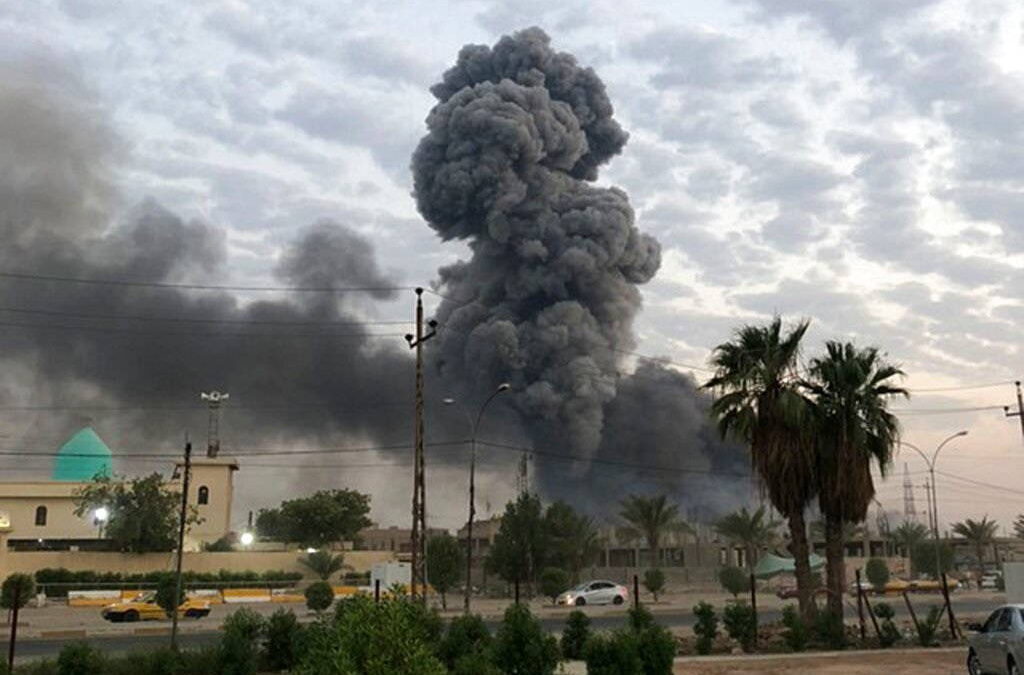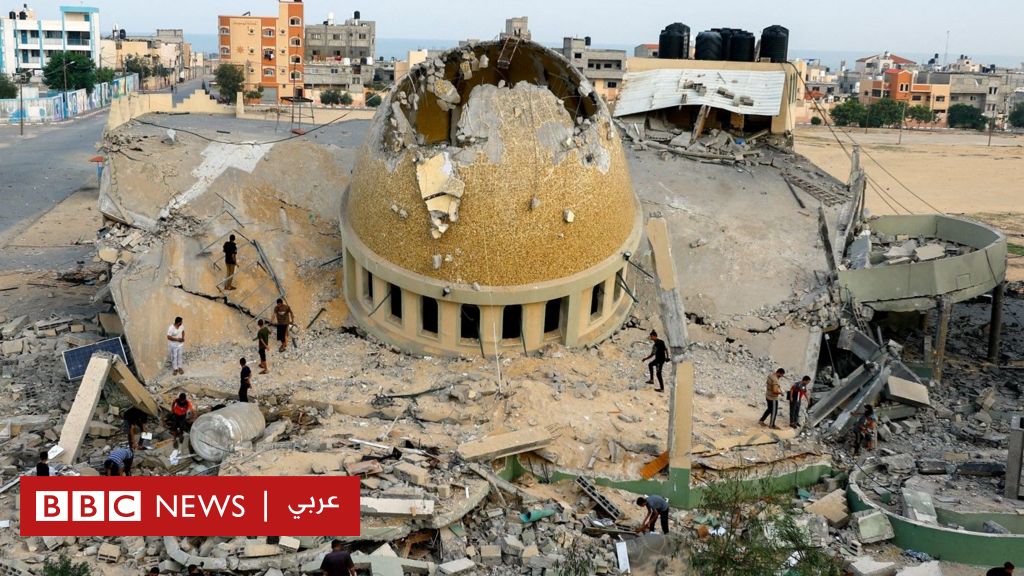Historical Context

The relationship between Iran and Israel has been marked by deep animosity and mistrust for decades, rooted in a complex web of historical, religious, political, and ideological factors. This enduring conflict has shaped the region’s political landscape and continues to pose significant challenges to peace and stability.
Historical Roots of the Conflict
The historical roots of the Iran-Israel conflict can be traced back to the establishment of the State of Israel in 1948. This event was met with strong opposition from many Arab states, including Iran, which saw it as an infringement on Palestinian rights and a threat to regional stability. The 1979 Islamic Revolution in Iran, led by Ayatollah Ruhollah Khomeini, further intensified tensions between the two countries. Khomeini’s anti-Western and anti-Israel rhetoric, coupled with Iran’s support for Palestinian militant groups, solidified Iran’s position as a staunch opponent of Israel.
Timeline of Significant Events
- 1948: The establishment of the State of Israel triggers a war with neighboring Arab states, including Iran, which supports the Palestinian cause.
- 1979: The Iranian Revolution leads to the establishment of an Islamic Republic, with a strong anti-Israel stance.
- 1980s: Iran supports Hezbollah, a Lebanese Shiite militant group, in its fight against Israel.
- 1988: Iran and Israel engage in a proxy war in Lebanon, with Iran backing Hezbollah and Israel supporting the South Lebanon Army.
- 2006: The Second Lebanon War, a conflict between Israel and Hezbollah, further escalates tensions between Iran and Israel.
- 2011: Iran’s nuclear program becomes a major point of contention, with Israel expressing concerns about Iran’s intentions and threatening military action.
- 2015: The Joint Comprehensive Plan of Action (JCPOA) is signed, aimed at curbing Iran’s nuclear program in exchange for sanctions relief. Israel strongly opposes the deal.
- 2018: The United States withdraws from the JCPOA, reimposing sanctions on Iran. This move is welcomed by Israel, which sees it as a step towards containing Iran’s influence.
- 2020: Israel carries out airstrikes on Iranian-linked targets in Syria, escalating tensions in the region.
Role of External Actors
External actors, particularly the United States, have played a significant role in shaping the relationship between Iran and Israel. The United States has historically been a close ally of Israel, providing military and financial support. However, the US relationship with Iran has been more complex, marked by periods of cooperation and confrontation.
- The United States: The US has been a key player in the Iran-Israel conflict, providing military and financial support to Israel while also engaging in diplomatic efforts to address the nuclear issue and regional tensions.
- The European Union: The EU has sought to maintain a balanced approach, supporting the JCPOA and advocating for diplomatic solutions to the conflict. However, EU member states have differing perspectives on Iran, with some expressing concerns about its nuclear program and regional activities.
- Russia: Russia has sought to maintain close ties with both Iran and Israel, navigating a delicate balancing act. Russia has supported Iran’s nuclear program and its role in Syria, while also maintaining good relations with Israel.
Military Capabilities and Strategies: Iran Attack Israel

A hypothetical conflict between Iran and Israel would involve two militaries with distinct strengths and weaknesses. This section will explore the military capabilities and potential strategies of each nation, analyzing their conventional forces, cyberwarfare potential, and unconventional tactics.
Conventional Military Capabilities, Iran attack israel
Understanding the conventional military capabilities of Iran and Israel is crucial for assessing the potential outcomes of a conflict. Both nations possess a range of conventional weapons and forces, but their strengths and weaknesses differ significantly.
- Iran possesses a large and diverse military force, including a significant ground force, a substantial air force, and a growing naval fleet. Iran’s military doctrine emphasizes asymmetric warfare, relying on a combination of conventional and unconventional tactics to counter a technologically superior adversary.
- Israel, on the other hand, has a smaller but highly technologically advanced military. Israel’s military is known for its sophisticated weaponry, well-trained personnel, and advanced intelligence capabilities. Its focus is on precision strikes and rapid response capabilities.
Potential Strategies and Tactics
Both Iran and Israel would likely employ a range of strategies and tactics in a hypothetical conflict, taking into account their respective strengths and weaknesses.
- Iran might seek to exploit its numerical advantage in ground forces and use its vast network of underground facilities to withstand initial Israeli strikes. It could also rely on asymmetric tactics such as guerrilla warfare, rocket attacks, and the use of improvised explosive devices (IEDs) to inflict casualties and disrupt Israeli operations.
- Israel, with its advanced technology and precision capabilities, would likely focus on targeting Iranian military infrastructure, key command and control centers, and strategic assets. Israel’s air force would play a crucial role in launching airstrikes, while its intelligence capabilities would be used to gather information and direct operations.
Cyberwarfare and Unconventional Tactics
The potential use of cyberwarfare and unconventional tactics could significantly impact the course of a conflict.
- Iran has been accused of conducting cyberattacks against Israeli infrastructure and institutions in the past. In a conflict, Iran might seek to disrupt critical infrastructure, including power grids, communications networks, and financial systems, through cyberattacks.
- Israel is known for its advanced cyber capabilities and has been involved in several cyber operations against its adversaries. In a conflict, Israel could launch cyberattacks to disrupt Iranian command and control systems, cripple its communication networks, and sabotage its military operations.
- Iran could also employ unconventional tactics such as the use of chemical weapons or the support of proxy groups in neighboring countries to attack Israeli targets. However, the use of such tactics would likely have significant international consequences.
Regional and Global Implications

An escalation of tensions between Iran and Israel would have profound implications for the Middle East and the world at large. A conflict between these two countries could potentially trigger a wider regional war, destabilize the entire region, and have significant global repercussions.
Impact on Neighboring Countries
The potential for regional instability is significant. A conflict between Iran and Israel could easily spill over into neighboring countries, drawing them into the conflict. For example, Lebanon, Syria, and Iraq, all of which have close ties to Iran, could be drawn into the conflict. Additionally, the conflict could lead to a resurgence of regional proxy wars, as various countries support their allies in the conflict.
- Lebanon: Hezbollah, a powerful Lebanese Shia militia backed by Iran, could be drawn into a conflict with Israel, potentially leading to a full-scale war in Lebanon.
- Syria: The Syrian government, which has been a close ally of Iran, could be drawn into a conflict with Israel, further destabilizing the already war-torn country.
- Iraq: Iraq, which has close ties to both Iran and the United States, could face pressure to choose sides in a conflict, potentially leading to internal instability.
Impact on International Relations
A conflict between Iran and Israel would also have significant implications for international relations. The conflict could lead to a deterioration of relations between the United States and Iran, potentially further escalating tensions between the two countries. The conflict could also lead to a realignment of alliances in the region, as countries seek to protect their interests.
- US-Iran Relations: The conflict could further escalate tensions between the US and Iran, potentially leading to a new round of sanctions or even military confrontation.
- Regional Alliances: The conflict could lead to a realignment of alliances in the region, as countries seek to protect their interests and form new partnerships.
Impact on Energy Markets
A conflict between Iran and Israel could have a significant impact on global energy markets. Iran is a major oil producer and exporter, and any disruption to its oil production could lead to a surge in oil prices. This could have a ripple effect on the global economy, leading to higher energy costs and inflation.
- Oil Prices: A conflict could disrupt Iranian oil production and exports, leading to a surge in oil prices and potentially causing economic instability.
- Global Economy: A rise in oil prices could have a negative impact on the global economy, leading to higher energy costs and inflation.
Role of International Organizations
International organizations such as the United Nations and the European Union could play a role in mediating or de-escalating a conflict between Iran and Israel. These organizations could provide a platform for dialogue between the two countries and work to build trust and confidence. They could also impose sanctions on countries that violate international law or threaten regional stability.
- United Nations: The UN could play a role in mediating a conflict between Iran and Israel, providing a platform for dialogue and promoting peaceful solutions.
- European Union: The EU could impose sanctions on countries that violate international law or threaten regional stability, working to deter aggression and promote peace.
Role of Major Powers
Major powers such as the United States, Russia, and China could also play a role in mediating or de-escalating a conflict between Iran and Israel. These countries have significant influence in the region and could use their diplomatic leverage to encourage dialogue and restraint.
- United States: The US could use its diplomatic leverage to encourage dialogue and restraint between Iran and Israel, potentially playing a role in de-escalating tensions.
- Russia: Russia could use its influence in the region to promote dialogue and prevent a wider conflict, potentially acting as a mediator between Iran and Israel.
- China: China could play a role in mediating a conflict, using its economic and diplomatic influence to encourage dialogue and prevent escalation.
Iran attack israel – The tension between Iran and Israel is a complex and volatile issue. While we cannot condone violence, it is crucial to understand the historical context and current events. To fully grasp the situation, it is essential to be aware of the time difference, as events unfold in real-time.
You can check the current time in Israel here to stay informed about the latest developments and their potential impact on the region. Understanding the time difference allows us to better analyze the situation and pray for peace and stability in the Holy Land.
The recent escalation of tensions between Iran and Israel has raised concerns about potential conflict. While both nations have a history of hostility, recent events have intensified the situation. In a separate incident, a helicopter crashed into a Hilton hotel , highlighting the unpredictable nature of events and the importance of maintaining peace and stability in the region.
The ongoing conflict between Iran and Israel serves as a reminder of the need for dialogue and diplomacy to prevent further escalation.
